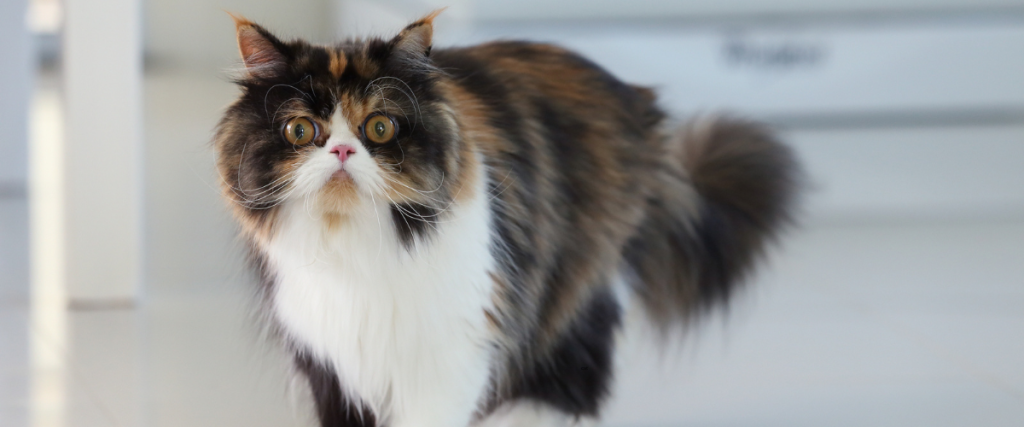 A recent peer-reviewed study has demonstrated that L. reuteri may help support intestinal balance and overall well-being in Persian cats (Belà et al., 2024). As in all animals, a healthy and diverse gut microbiome is essential for maintaining homeostasis and promoting immune and physiological health. Dysbiosis—an imbalance in the gut microbial community, often marked by reduced diversity—has been associated with increased susceptibility to pathogens, compromised immune responses, and disruptions in metabolic and neurological development (Ouwehand et al., 2002; Mondo et al., 2020).
A recent peer-reviewed study has demonstrated that L. reuteri may help support intestinal balance and overall well-being in Persian cats (Belà et al., 2024). As in all animals, a healthy and diverse gut microbiome is essential for maintaining homeostasis and promoting immune and physiological health. Dysbiosis—an imbalance in the gut microbial community, often marked by reduced diversity—has been associated with increased susceptibility to pathogens, compromised immune responses, and disruptions in metabolic and neurological development (Ouwehand et al., 2002; Mondo et al., 2020).
In the controlled trial by Belà et al. (2024), twelve healthy Persian cats over one year of age were randomly assigned to either a control group or an experimental group receiving a diet supplemented with L. reuteri NBF 2 DSM 32264. The study lasted 49 days, including a two-week acclimatization period followed by 35 days of dietary intervention.
All cats consumed their respective diets fully and showed no adverse effects. Body weights and body condition scores remained stable throughout the trial, with all cats maintaining an ideal body condition. Importantly, during the final two weeks of the study, cats receiving L. reuteri showed improved fecal characteristics, including lower fecal moisture content and more compact, well-formed stools. These improvements were accompanied by lower counts of potentially harmful bacteria, indicating a beneficial modulation of the gut microbiota.
This research is notable as the first to evaluate the effects of L. reuteri in a specific feline breed, Persian cats, and it highlights the potential for probiotic supplementation to improve fecal quality and gut health. Similar studies in other animal species, including dogs and humans, have demonstrated comparable benefits with various strains of L. reuteri and other probiotics (Bybee et al., 2011; Ouwehand et al., 2002).
Moreover, recent feline microbiome research underscores the importance of bacterial diversity and composition in maintaining digestive health and preventing gastrointestinal issues (Mondo et al., 2020). The results of this study align with these findings and suggest that the inclusion of a species-specific, live probiotic such as L. reuteri may serve as a practical dietary intervention to support digestive health in cats.
Conclusion:
Supplementing a cat’s diet with species specific L. reuteri, like in Feliotic, may improve fecal quality by reducing moisture content and lowering pathogenic bacterial loads. While further research is needed to confirm these effects in other feline breeds and broader populations, the evidence supports the inclusion of targeted probiotics as a beneficial addition to feline nutrition.
Sources:
Belà B, Di Simone D, Pignataro G, Fusaro I, Gramenzi A. Effects of L. reuteri NBF 2 DSM 32264 Consumption on the Body Weight, Body Condition Score, Fecal Parameters, and Intestinal Microbiota of Healthy Persian Cats. Veterinary Sciences. 2024; 11(2):61. https://doi.org/10.3390/vetsci11020061
Bybee, Sarah N., et al. “Effect of the Probiotic Lactobacillus reuteri on the Incidence of Diarrhea in Kennel-Housed Dogs.” Journal of Veterinary Internal Medicine, vol. 25, no. 4, 2011, pp. 856–860. Wiley Online Library, https://doi.org/10.1111/j.1939-1676.2011.0734.x.
Mondo, Emmanuel, et al. “Feline Gut Microbiota Composition and Its Variation According to Dietary Habits and Health Status.” Scientific Reports, vol. 10, no. 1, 2020, p. 21522. Nature, https://doi.org/10.1038/s41598-020-78645-4.
Ouwehand, Arthur C., et al. “Probiotic and Other Functional Microbes: From Markets to Mechanisms.” Current Opinion in Biotechnology, vol. 13, no. 5, 2002, pp. 483–487. Elsevier, https://doi.org/10.1016/S0958-1669(02)00358-8.
